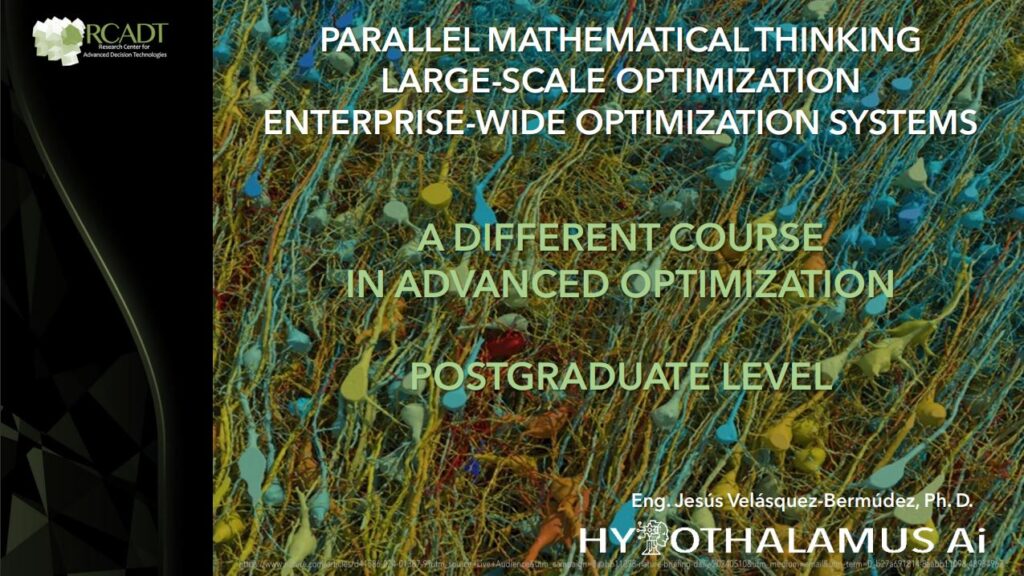The Oil & Gas industry is facing complex challenges today: from fluctuating oil prices to regulatory pressures and the growing need for sustainability. In this context, emerging technologies like artificial intelligence (AI) and mathematical optimization are revolutionizing how companies operate and make strategic decisions.
Hypothalamus AI (HAI) is at the forefront of this transformation, offering advanced solutions that optimize every stage of the Oil & Gas supply chain, from exploration to product distribution. HAI is now offering a specialized course, Supply Chain Optimization and Artificial Intelligence for the Oil & Gas Industry, designed to equip professionals with the skills to leverage AI and optimization techniques and lead the industry’s digital transformation.
Challenges and Opportunities in the Oil & Gas Supply Chain
The full Oil & Gas supply chain process includes critical phases such as:
- Oil Exploration & Exploitation: AI algorithms can predict drilling locations with higher accuracy.
- Multimodal Transportation of Petroleum and Petroleum Products: Mathematical models optimize routes and transportation modes, reducing operational costs.
- Pipeline Transportation: AI-driven process optimization ensures efficient and safe movement of oil through pipelines.
- Blending and Refining of Petroleum and Biomass: Smart refining allows precise adjustments to meet regulations and optimize resource use.
Optimizing these phases not only improves efficiency but also reduces costs and minimizes environmental impacts—critical for an industry transitioning towards more sustainable models.
The Power of Artificial Intelligence in Process Optimization
In a highly competitive global environment like Oil & Gas, traditional models are no longer sufficient. This is where Predictive and Prescriptive Artificial Intelligence becomes essential. Some of the most powerful AI-driven technologies that are changing the industry include:
- Advanced Predictive Models: Using technologies such as neural networks and probabilistic models, companies can forecast demand, enhance decision-making, and prevent costly supply chain disruptions.
- Prescriptive Optimization: This branch of AI uses advanced techniques such as mathematical programming and parallel optimization to solve complex problems in real time, improving both efficiency and accuracy across production and transportation processes.
At HAI, we specialize in implementing these technologies through our Enterprise-Wide Optimization Systems (EWOS), integrating multi-problem models and distributed real-time solutions. This ensures that companies can respond to market dynamics with greater agility and precision.
How Mathematical Optimization is Transforming Oil & Gas
Mathematical optimization is essential to overcoming many of the industry’s obstacles. Techniques such as process optimization and real-time optimization improve operational efficiency in areas like:
- Pipeline Transportation: Minimizing transportation costs through network optimization with advanced equilibrium models.
- Natural Gas Supply Chain: Modeling and optimizing natural gas networks to reduce losses and ensure continuous service.
- Refining and Blending: Optimizing oil and biomass blending to maximize yield and comply with environmental regulations.
The Supply Chain Optimization Course in Oil & Gas: Your Opportunity to Lead
HAI is launching a specialized course, Supply Chain Optimization and Artificial Intelligence for the Oil & Gas Industry, to provide professionals with the tools they need to apply AI and mathematical optimization in their operations. This course offers:
- Predictive models to enhance decision-making across all stages of the supply chain.
- Real-time optimization to reduce operational costs and boost efficiency.
- Advanced AI techniques, including neural networks and hybrid models (e.g., Kalman Filter), enabling participants to optimize multimodal transportation and refining processes.
Why You Should Take This Course
The transition towards a more digitally optimized industry is inevitable, and those who adopt these technologies early will have a significant competitive edge. Upon completing this course, you will not only master AI and mathematical optimization tools, but you will also be prepared to lead the digital transformation in the sector.


